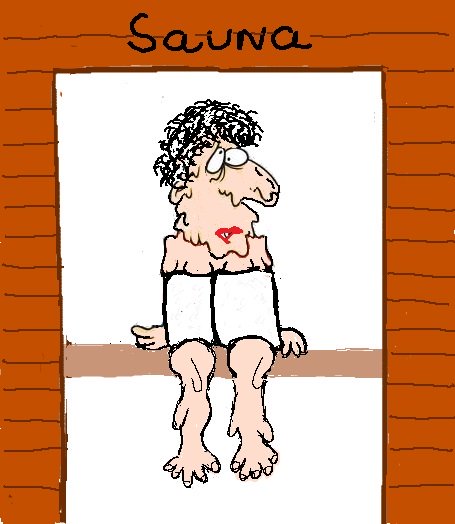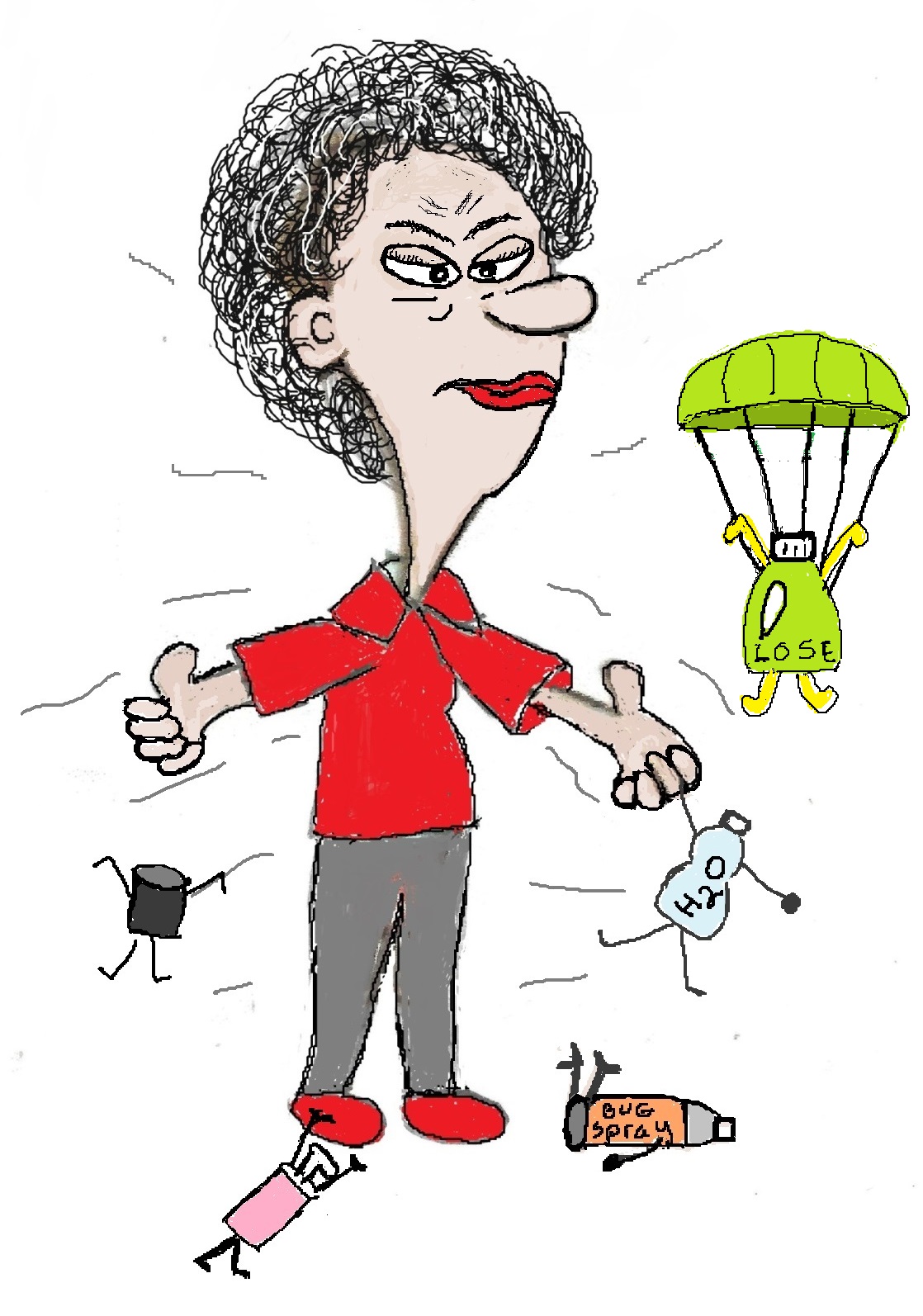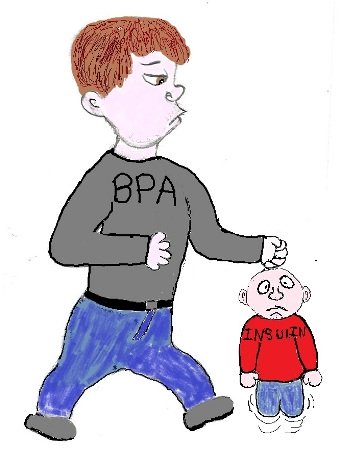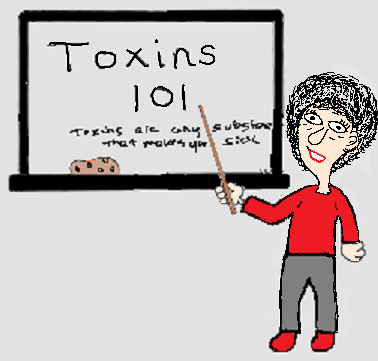- Home
- Toxic Chemicals & Health
- Premature Aging
Aging
– The Role Of Toxins in Premature Aging
Aging is a disturbing and frustrating biological process. The last thing you want to do is speed up the process.
But it’s very likely that a lifetime of toxin exposure, plus your body’s decreasing ability to deal with toxins does cause premature aging and disease. This is yet another reason to embrace less toxic living.
Need some convincing. Smoking is a well-known example of how toxins age you prematurely.
According to the American Lung Association there are approximately 600 ingredients in cigarettes. When burned, they create more than 7,000 chemicals. At least 69 of these chemicals are known to cause cancer, and many are toxic.
The toxic chemicals released from cigarettes age your skin and internal organs prematurely. Many of these chemicals, plus a bunch of other toxins, are also found in products that you use every day.
For example, you're exposed to arsenic when you smoke and eat brown rice. It can also be found in drinking water. You're also exposed to formaldehyde when you smoke and when it is released from personal care products that you use.
In other words, it's not just smoking that exposes you to toxins that will age you prematurely. All types of products that you use every day can have the same effect. And unfortunately, the older you get the greater the danger from toxin exposure.
Aging And Toxin Exposure
There are two critical times in your life when toxins do the most harm. The first is when you’re very young and your body is still developing. This critical time is well known and well-studied.
The second one is less well known and largely ignored by researchers. After age 50 you are also more susceptible to the effects of toxin exposure.
Why? Because us older folks have two strikes against us. We have accumulated a lifetime of toxin exposure. And the changes in your body as you age decreases your ability to deal with toxin exposure.
In other words, a lifetime of toxin exposure, plus your body’s decreasing ability to deal with toxins accelerates aging and disease.
A Lifetime Of Exposure
From the 9 months before you were born until now you’ve been exposed to chemicals that can make you sick.
Some, like BPA, are broken down and excreted from your body within a few days. That doesn’t make them less dangerous. Your liver and gut have to work very hard to convert toxins into forms your body can excrete. Plus, sometimes the breakdown products are more toxic than the original chemical.
Other chemicals, like PFCs found in nonstick and stain-resistant products, resist being broken down and instead get absorbed into your body fat.
These toxins, called Persistent Organic Pollutants (POPs) have been hanging out in your body fat for years, even decades. Plus, when you eat animals (meat and dairy), the POPs in their body fat become your POPs.
Toxic chemicals that hang out in your body for years have plenty of time to damage your health. That's why POPs have been linked to many different diseases, including obesity and cancer.
And of course, as you age, the fat (lipid) portion of your body tends to increase, making you more susceptible than young adults to injury from fat-soluble chemicals at the same exposure levels.
Your Aging Body
Researching this part was really depressing, but I stuck with it because it’s important to recognize that all the changes in your body as you age can exaggerate the effects of toxin exposure.
“The ability of the body to respond to physiologic challenge imposed by potentially toxic substances in the environment is dependent upon the health of the organ systems that eliminate those substances from the body.” (2010, Reviews of environmental contamination and toxicology)
And unfortunately, from the age of 30, a number of your body’s systems begin to decline. Everything from your endocrine system to your gut become more dysfunctional the older you are.
This
decline changes both what your body does to the chemical toxins you're exposed to and what the
toxins do to your body.
|
Liver |
Your liver size and the blood flowing through it decrease after age 50, Your liver is the main way your body breaks down toxins. A decline in size and blood flow means your aging liver is less able to clear your body of toxins. Numerous studies have found this to be true for prescription drugs and there is no evidence to suggest that the ability of the body to metabolize and eliminate environmental chemicals would be different than for drugs. |
|
Kidneys |
As you age the blood flow and filtration rate in your kidneys decreases, reducing your body’s ability to properly filter your blood and eliminate toxins. This increases the amount of time they spend in your body before they are excreted. |
|
Brain |
Your nervous system performs less efficiently as you get older. For example, changes to your brain like a more permeable blood-brain barrier and weakened detox and repair functions results in a reduced ability to protect your brain from neurotoxins. This means that exposure to neurotoxins may exacerbate the normal effects of the aging process on the brain. Also, because of the changes in your nervous system as you age your body may be affected by lower levels of toxin exposure than in healthy young adults. |
|
Skin |
Your
skin is your body’s first line of defense in protecting you against toxins. But
as you age the changes in your decrease its effectiveness to function as a
barrier. That means toxic chemicals that can enter your body through unbroken
skin, like some insecticides and chemicals found in personal care products, may
enter aged skin more easily. |
|
Immune System |
As you age your immune system becomes less efficient at protecting you from foreign invaders. Unfortunately, exposure to a variety of metals like mercury, pesticides, benzene and chlorinated organic hydrocarbons can speed up the decline by negatively impact your immune system. |
|
Endocrine System |
The hypothalamus, which has direct control of the endocrine system through the pituitary gland becomes increasingly dysfunctional as you age. Plus, your hormone secretion changes and your thyroid gland shrinks. The last thing your aging endocrine system need is to constantly be bombarded with endocrine disrupting chemicals like BPA and phthalates. |
So, looking at just the changes listed above, you can see just how harmful toxin exposure can be as you age. You’ve got a liver that isn’t breaking down toxins as efficiently and kidneys that aren’t filtering the break down products as well as they used to, which means toxins hang around in your body longer.
Plus, toxins can now enter your brain and your skin more easily and your lack luster endocrine system is taking daily hits from endocrine disrupting chemicals. What this all means is it is very likely that toxin exposure contributes to the diseases that become more common as you age.
Premature Aging And Disease
The changes in your body as you age make you more susceptible to the effects of toxin exposure. Toxins that are known or thought to affect your health.
Although there are other lifestyle factors, it makes sense that many of the diseases that become more common as you age may be linked to toxin exposure. For example, there is a strong link to indoor and outdoor air pollution, and arsenic and lead exposure and heart disease.
And consider that twenty-five percent of people 65 and older have Diabetes. Again, lifestyle plays a role but so does exposure to endocrine disrupting chemicals like BPA, phthalates, arsenic, POPs and organochlorine pesticides.
These toxic chemicals are linked to insulin resistance, a precursor to diabetes where your body doesn’t respond to insulin. Insulin resistance also plays a role in most other types of metabolic diseases.
Plus, many of the toxins you’re commonly exposed to are carcinogens. They damage your DNA, cause cell mutations and other changes in your body that lead to cancer.
By age 50 you’ve had prolonged exposure to carcinogens. That’s a lot of years of damage.
In fact, age past 50, is the greatest risk factor for getting cancer. 60% of people with cancer are 65 or older.
Chronic Inflammation is another “disease state” that is common as we age. Endocrine disrupting chemicals like BPA and phthalates, pesticides like atrazine and chloropyrifos, POPs (persistent organic pollutants ) like PCBs and PFCs (found in stain and stick resistant products), nanoparticles and toxins in the air have all been linked to body inflammation.
Healthy Aging
Let's face it, getting old sucks. And there's nothing you or I can do to stop the aging process. What you can do, though, is not speed up the process.
INSTEAD OF PREMATURE AGING, STRIVE FOR HEALTHY AGING.
With 2 strikes against you – a lifetime of exposure and a decreasing ability to deal with toxin exposure - how do you protect yourself from premature aging caused by toxin exposure?
There are several important things you can do to protect yourself (besides a healthy diet and exercise). These changes support your body’s ability to deal with toxins by reducing the toxin levels in your body. This can be accomplished through a combination of detoxing, supporting your body's ability to break down and eliminate toxins and reducing your future exposure to toxins through less toxic living.
Detox
The build-up of toxins that are in your body are tough to get rid of. And contrary to all the hype, most detox programs don’t work or only work for a few toxins.
There are a few ways to eliminate some toxins from your body. The most effective is sweating using sauna therapy or exercise.
Support Your Body
You want to do everything you can to support your body’s ability to break down toxins. And supporting glutathione levels in your body is a great way to do this.
Glutathione is a protein produced by your body and found in all your cells. It plays many important roles in your body. And of course, more good news for us Baby Boomers, levels of glutathione decrease as we get older, especially after age 60.
Because it’s a master detoxifier, a powerful antioxidant and a key player in the function of your immune system, boosting levels in your body will help your fight against premature aging.
Unfortunately, because glutathione is a protein you can't just take it in pill form. Your digestive system would break it down just like it does with other proteins so it wouldn't get where it needs to go.
But there are proven ways to boost your body's glutathione levels. These approaches include providing your body with the building blocks it needs to make glutathione and supporting the enzymes that help it do its job.
- Increase dietary sources of cysteine, like ricotta, cottage cheese, yogurt, chicken and turkey.
- Consider a Cysteine Supplement called N-acetylcysteine (NAC) NAC is the source of cysteine that is easily absorbed by your body. Recommended dose is 250-500mgs daily
According to WebMD - N-acetyl cysteine is LIKELY SAFE for most adults, when used as a prescription medication. It can cause nausea, vomiting, and diarrhea or constipation. Rarely, it can cause rashes, fever, headache, drowsiness, low blood pressure, and liver problems.
- Add broccoli sprouts to your diet. They contain high levels of the phytochemical sulforaphane that makes detox enzymes more active and it also stimulates your liver to make glutathione.
- Give Aged Garlic Extract (AGE) a try. Studies have shown that taking AGE increases glutathione levels in a variety of cells, including the liver.
Plus, in the fight against premature aging It is also an important antioxidant, improves heart health and protects your cells from cancer-causing toxins. AGE may also help protect against loss of brain function in aging and possess other anti-aging effects.
The best known and most highly recommend AGE is Kyolic Aged Garlic Extract. It's what I use. Just take 1/4 teaspoon twice a day with food.
- There are several vitamins and minerals that also support glutathione and its helper enzymes. These include vitamin C, vitamin E, vitamins B1, B2, B6, B12, folate (B9), and minerals like selenium and magnesium.
Embrace Less Toxic Living
The second thing you need to do is reduce your future exposure to toxins. The toxins that can age you prematurely are found in the lotions, potions, pesticides and cleaning products you use, the furnishings in your home and the food and water you consume.
So to embrace less toxic living:
1. Break your habit of buying toxic products. For help with this read Shedding Your Toxic Products Habit.
2. Educate yourself about ways to reduce your toxin exposure. You'll find plenty of info on Nontoxic For Health that will help you live a less toxic life. Start with the Toxin Primer.
Then, work your way through the articles. I know, that's a lot of reading.
OR
To simplify the process I've created a 16 Step Guide To Less Toxic Living. In this guide you'll find everything you'll need to reduce your toxin exposure, written in an easy to follow format. This guide covers topics like detoxing your food, water, personal care and cleaning routines to cleaning up your indoor air.
Take your time and follow each step to accomplish healthy aging through less toxic living.
Other Posts You May Like
 How To Detox Your Body Part II How To Detox Your Body Part II |






